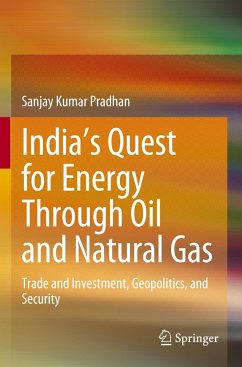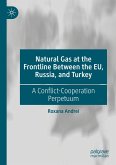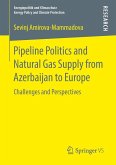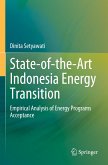This book analyzes energy security through the lens of oil and natural gas and explains how geopolitics and security challenges affect India's quest for energy security. It also offers insights into India's international trade and investment in the overseas oil and natural gas markets and discusses shale energy, adopting region-specific (Africa, West Asia, Central Asia, and LAC), country-specific (Russia and the US), maritime-specific (Arctic and South China Sea), and pipeline-specific (TAPI, MBI, IPI, and RCI) approaches to analyze India's oil and natural gas trade and investment abroad. The introductory chapter examines energy perspectives in international relations and conceptualizes energy geopolitics and energy security from both international and Indian standpoints. The book also highlights the similarities and differences in the issues involved in the global oil and natural gas market, and India's approach to these, offering a roadmap for holistic and integrated energysecurity through oil and natural gas.
Since India's energy trade and investment in the international oil and natural gas market are not free from the effects of political instability, corruption, environment crisis, militancy, terrorism, war, and geopolitical involvement and interference, the book investigates the nature and extent of the security threats and competition India faces in the oil and natural gas-producing countries while pursuing its trade and investments there. As major sources of energy, oil and natural gas are strategic assets, and energy security is one of the core areas of India's foreign policy pursuits. As such, the chapters critically assess India's energy policy and resource diplomacy, providing analyses of the issues raised, identifying the central arguments and presenting existing cooperations - with past examples where necessary. The book appeals to scholars and policymakers active in the fields of energy, political science, international relations, economics, foreign policy, peace and conflict, security and geopolitics, as well as non-experts interested in this topic.
Since India's energy trade and investment in the international oil and natural gas market are not free from the effects of political instability, corruption, environment crisis, militancy, terrorism, war, and geopolitical involvement and interference, the book investigates the nature and extent of the security threats and competition India faces in the oil and natural gas-producing countries while pursuing its trade and investments there. As major sources of energy, oil and natural gas are strategic assets, and energy security is one of the core areas of India's foreign policy pursuits. As such, the chapters critically assess India's energy policy and resource diplomacy, providing analyses of the issues raised, identifying the central arguments and presenting existing cooperations - with past examples where necessary. The book appeals to scholars and policymakers active in the fields of energy, political science, international relations, economics, foreign policy, peace and conflict, security and geopolitics, as well as non-experts interested in this topic.








